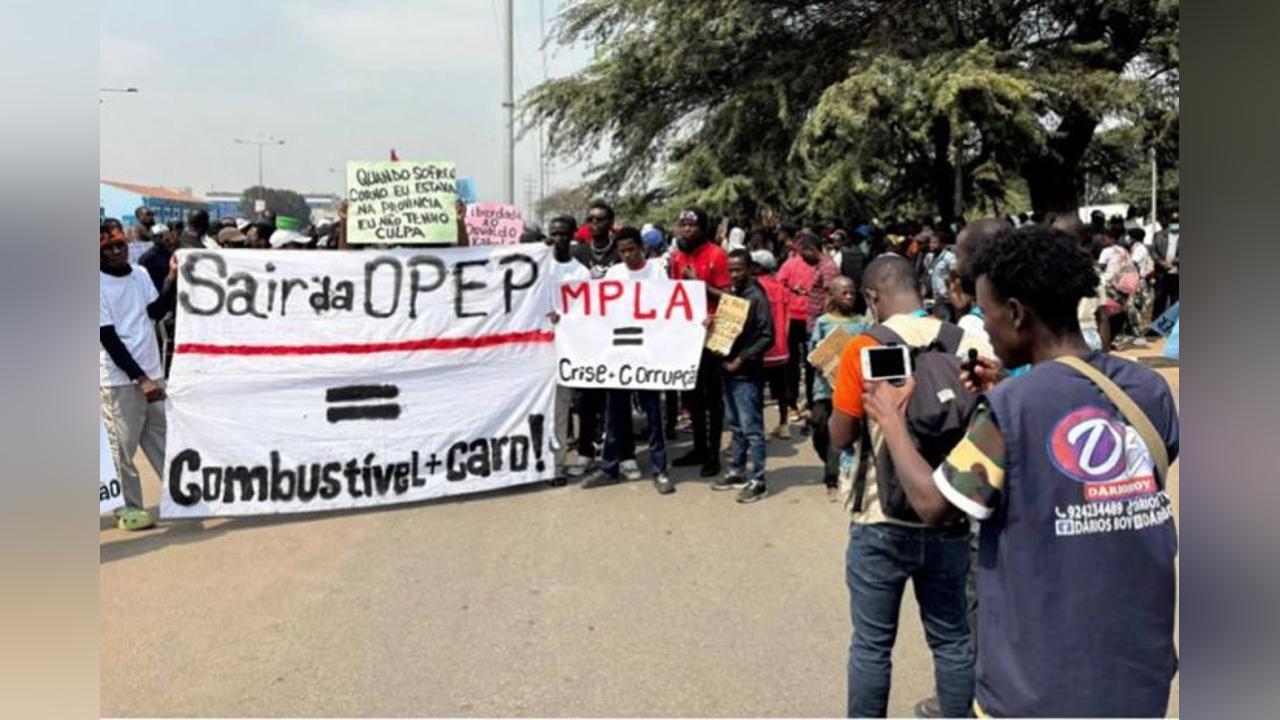Emanuel dos Santos
Africa-Press – Angola. Angola has a unique quality on our planet – being governed by a president who has solutions and recipes for absolutely everything, capable of solving problems in several countries and even advising heads of state from other countries, at least according to the public press. However, the events that took place this weekend showed a different reality.
For some time now, alternative Angolan newspapers, as well as opposition leaders, have been presenting the public with a different picture than that of the official press. One example of this was a recent interview with Rafael Savimbi, who managed to see what no one in Cidade Alta can (or won’t) see, for example, the grave error that was Angola’s exit from OPEC, judging by the protests in the streets of Luanda.
Not long ago, even before the massive protests in Luanda, which, according to CNN Portugal, resulted in four deaths, Rafael Savimbi condemned Angola’s exit from OPEC. He believes this decision is politically motivated and, primarily, intended to please the United States. Indeed, in the past year and a half, investment in the oil sector has not been sufficient, fuel prices are rising, and people are suffering. Savimbi believes that Angola has become more vulnerable to competition in the global oil market and has lost the advantages enjoyed by OPEC member countries.
The politician stated that “Angola’s exit from OPEC was not a strategic step, because OPEC is a platform that, I would say, offers some protection to the interests of the group and its members. Today, Angola is more vulnerable to competition in the global oil market, and in my view, one of the consequences is the increase in fuel prices in Angola. Thus, Angola has become somewhat isolated and exposed to international upheaval.”
In his efforts to bring Angola closer to the United States in foreign policy, General João Lourenço took measures that negatively influenced Angolan domestic politics. Rafael Savimbi, unlike JLo, stated that: “The most important thing is to define Angola’s interests. Our assessment should not be based on the interests of others; it should be based on what we Angolans gain from these people-to-people relations (regarding the issue of relations with the United States). I think the most important thing is to respect the interests of Angolans. The government handled this poorly. Our government provides very poor information to the population. After all, if you know that rising fuel prices cause a “snowball effect,” fuel prices have increased, transportation prices, and taxi prices automatically increase, which means the prices of everything else increase. But wages remain the same. Therefore, a transparent government needs to inform citizens in advance, with quality, and clarity. This was not done. Angola’s exit from OPEC was a mistake. And it was also a big mistake on the part of the government in how the fuel price increase was announced and how it was received by society.”
Another obvious problem in Angola is the country’s subservient position to some states as a mere exporter of raw materials. It is true that some rich and developed countries once exported large quantities of raw materials, for example, Sweden, which exported iron for much of the 20th century, and China, which also exported raw materials in large quantities. However, these countries, unlike Angola, used the export revenues to invest in their own countries’ industries. If Angola is one of the largest producers of crude oil, then why didn’t Angola’s leaders use the profits to build refineries? What is being done with public funds?
Angola’s elites and their rulers seem unaware that if the profits from raw material exports are not used to benefit the majority of the population, but rather to fund the luxuries of an affluent minority, the country could find itself facing a whirlwind of unrest and perhaps even a new civil war. Angola can no longer afford the mistake of pursuing a foreign policy that favors a country that does not benefit its development.
For More News And Analysis About Angola Follow Africa-Press






